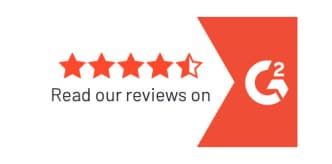As 2024 comes to an end and things quiet down for a few days, it’s a good opportunity for outsourced payroll and benefits administrators to make sure 2025 begins in full compliance. Here’s a list of important items you’ll hopefully have buttoned up already.
1. Payroll Compliance
- Employee Data Review : Ensure employee information (names, addresses, SSNs/ITINs) is accurate and up to date.
- Payroll Records Reconciliation: Compare year-to-date payroll reports with general ledger and tax filings to confirm accuracy.
- Tax Withholdings Verification: Check federal, state, and local tax withholdings for accuracy and compliance.
- Forms W-2 and 1099 Preparation: Ensure all employees and contractors receive their forms by the IRS deadline.
- Account for Fringe Benefits: Reconcile taxable benefits such as company cars, relocation expenses or education reimbursements.
- Adjustments and Corrections: Resolve any payroll errors to avoid penalties.
2. Benefits Compliance
- Benefits Election Verifications: Ensure employee benefits elections match payroll deductions.
- ACA Reporting Review: Ensure compliance with the Affordable Care Act (ACA) and prepare Forms 1094-C and 1095-C.
- Health Savings Accounts and Flexible Spending Accounts: Notify employees of contribution limits and deadlines for rollovers or reimbursements.
- COBRA Compliance: Verify COBRA-eligible employees are accurately tracked and notified.
- Retirement Plan Audits: Ensure contributions to 401(k) or other retirement plans comply with IRS limits.
3. Tax Compliance
- Tax Deposits Reconciliation: Ensure all payroll taxes were deposited accurately and on time.
- Year-End Filings Preparation: for federal and state unemployment taxes, as well as local payroll taxes (where applicable).
- Deadline Monitoring: Confirm IRS and state filing deadlines for W-2s, 1099s, and tax payments.
4. Vendor Coordination
- Deliverables Confirmation: Ensure your payroll provider will deliver all necessary reports and tax forms by agreed-upon deadlines.
- Service Agreement Reviews: Verify the scope of services to avoid surprises or gaps in compliance responsibilities.
5. Communication with Employees
- Year-End Statements: Share pay stub summaries and benefits statements for employee records.
- Deadline Reminders: Communicate deadlines for FSA claims, HSA contributions, and other year-end benefits.
- Tax Form Distribution: Notify employees when to expect W-2s and 1099s and how to update mailing addresses.
6. Recordkeeping and Audits
- Archive Records: Save copies of payroll reports, tax filings, and benefits documentation for at least the legally required period.
- Audit Planning: Prepare for potential audits by ensuring all records are complete and accurate.
7. Plan for the Next Year
- Update Payroll System: Adjust for new tax rates, contribution limits, and regulatory changes.
- Set Calendar Reminders: reminders for recurring compliance tasks and filing deadlines.
- Conduct Training: Educate staff about any changes to compliance requirements.



